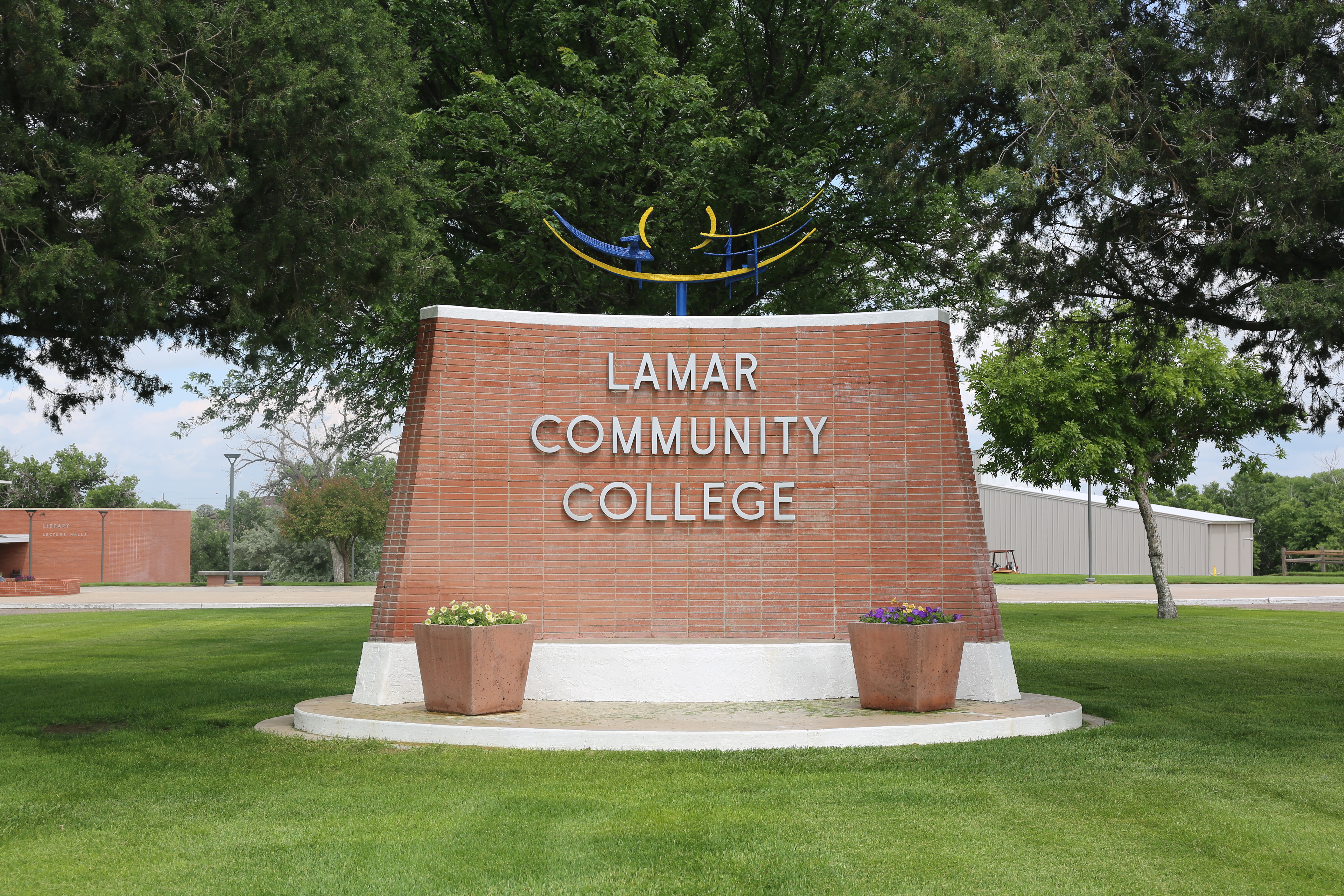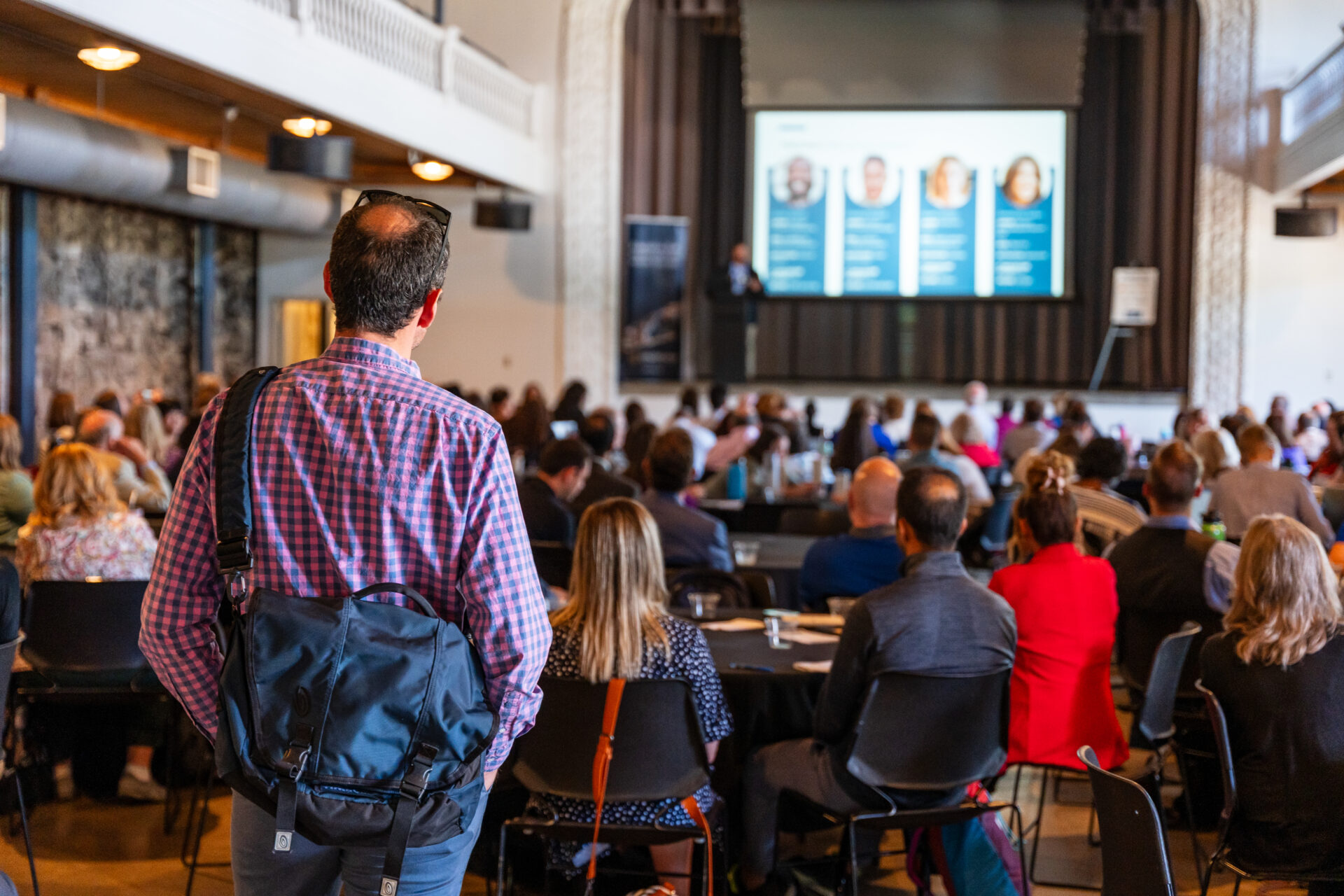Legislators, state officials, students, and CCCS leaders gathered in Denver last week to celebrate CCCS Day at the Capitol, an annual event that celebrates the impact of the Colorado Community College System and its 13 colleges.
Throughout the day, college presidents and students connected with state representatives and senators, learned from finance and workforce experts, and got an up-close look at policymaking in action. The event culminated a weeklong Capitol “takeover” that adorned the first floor of the building with college colors and informational items.
While the celebration brings plenty of college spirit to the Capitol, it also underscores the value CCCS colleges bring to families, communities, and the state, said CCCS Chancellor Joe Garcia.
“Starting at a community college is not the end—it’s the beginning of what individuals can do in education, in employment, and in life,” he told a group of legislators. “Thank you for being tremendous champions for our students and our colleges.”
‘Part of a Community’
The day kicked off with a panel of state legislators who focus on higher education and workforce development. Many of the members are first-generation students themselves and talked about their experience at community college.
“The messaging I was getting in high school was that I did not have the capability to go to a four-year institution. It was a community college that gave me the validation and the affirmation that I am worthy of education at any level,” said Senator Rhonda Fields, who attended Pikes Peak State College. “As long as you can continue to do that work to show up in the lives of young people, then our community, our economy, and our state will be well.”
Representative Shannon Bird, who chairs the state’s Joint Budget Committee, echoed this theme. She said public higher education changed the trajectory of her family.
“I can’t overstate the importance of your presence and your willingness to come in and engage with us,” she told the group. “These are the stories that move the needle, and I assure you we think about what you tell us when we cast our votes and when we choose the bills we’re going to run.”
Some of those bills include revamping the Student Bill of Rights among other priorities, said Senator Janet Buckner. She praised CCCS’s focus on keeping college affordable and flexible for learners.
“My constituents who go to Community College of Aurora tell me how important that place is for them. They really feel a part of a community so they can go on to do whatever they want to in the future, whether it’s continuing postsecondary or finding a job,” she said.
Getting the Message Out
After watching state lawmakers debate bills in the House and Senate, attendees met with state leaders to discuss emerging topics in higher education funding and workforce development.
The group first heard from Amanda Bickel, a chief legislative analyst who advises members of the Joint Budget Committee. With more students and families questioning the value of higher education, community colleges must do more to emphasize their lower tuition rates and strong return on investment, she urged.
“I remember when I first saw the data, I was shocked by how inexpensive it was—particularly for students who are Pell eligible,” she said. “I’ve been really interested in getting that message out.”
She also emphasized the state’s need to invest in rural community colleges, which often are the only education and training providers for hundreds of miles for thousands of Coloradans.
“Something everybody needs to think about is the value of our rural institutions. Of course, that is true for students, but it is also valuable to the communities,” she said. “The General Assembly understands that, and I hope that the government and legislature work together on this.”
Impacting the Workforce of Today and Tomorrow
Representatives from the Colorado Workforce Development Council (CWDC) and the Colorado Department of Labor and Employment then discussed trends affecting workers and employers. From the adoption of artificial intelligence to the sunsetting of coal production and other legacy industries, the state will continue to rely on community colleges to tackle workforce challenges, panelists said.
“How do we blur the lines across our system to ensure that young people understand how to connect to postsecondary education, and how do we translate that into the workforce?” Lee Wheeler-Berliner, managing director of the CWDC, posed to the group. “We want a seamless pipeline so someone starts off educated in Colorado, obtains a credential or degree in Colorado, and gets a great job in the state of Colorado.”
To build that pipeline, the state is expanding work-based learning models, said Katherine Keegan, director of Colorado’s Office of the Future of Work. She lauded CCCS’ work to create apprenticeships in healthcare, information technology, and other high-needs sectors.
“There’s research that shows for every four years you’re in a low-wage job, your likelihood of leaving it decreases by half. That’s a big driver for apprenticeships, because you’re earning while you’re learning, and you get an increase in wages as you gain new skills,” she said. “We want to bring that framework and other types of work-based learning to think differently about how people thrive in Colorado.”
Another priority is keeping up with the changing needs of employers, said Joe Barela, executive director of CDLE. With advancements in technology upending industries from finance to law, Coloradans will increasingly look to community colleges to “upskill, reskill, and next skill” quickly.
“We want to help you make good decisions so that students have not only a job, but a career path that can lead to a better job,” he told the college presidents. “That’s going to be really important, especially as our working-age population starts to shrink.”
Given these goals, Wheeler-Berliner predicted an even greater role for community colleges in the coming years.
“With 115,000 students coming through the community college system, you have a potential to impact the biggest segments in our workforce now and in the future.”
With 115,000 students coming through the community college system, you have a potential to impact the biggest segments in our workforce now and in the future.
‘An Eye-Opening Experience’
For the students in attendance, being a part of Day at the Capitol demonstrated the strong support for community colleges across all levels of government.
Hyang “Sunshine” Archibeque, a student government representative for Pueblo Community College, was struck by the importance of workforce development. She said her conversations inspired her to step up her involvement even more.
“It has really opened my eyes—it’s making me interested in researching political science or education as minor,” she said, adding she’s interested in working for a nonprofit. “I want to help our communities and our state as well.”
Front Range Community College student Hector Vargas shared Archibeque’s excitement. He currently serves as the student representative for the CCCS board and hopes to run for state office himself.
“We heard a lot of good opportunities to get students into the workforce,” he said. “I’m glad we got to come and talk to everyone. This is an eye-opening experience.”


